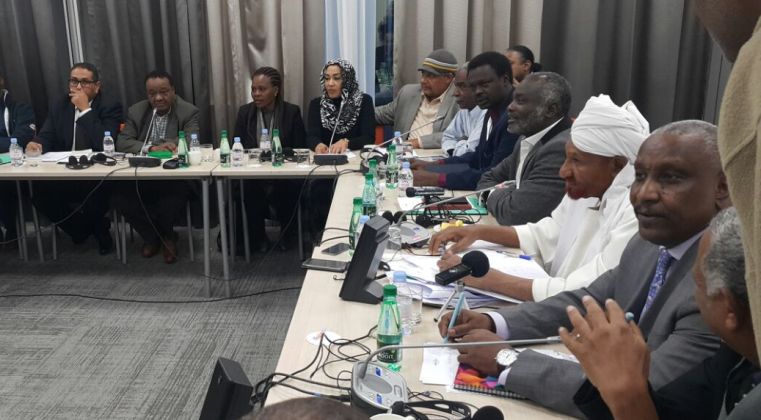Sudan welcomes Troika continued support for peace process in the country

February 18, 2017 (KHARTOUM) – Sudan on Saturday has welcomed a statement by the Troika countries expressing support for the peace process brokered by African Union High-Level Implementation Panel (AUHIP), and called on the rebels in the Two Areas to accept an Amercian proposal aiming to facilitate the signing of a humanitarian cessation of hostilities.
The joint statement issued by Norway, U.K. and U.S. called on the signatories of the Roadmap Agreement to conclude “comprehensive cessations of hostilities and engaging in an inclusive political dialogue”. It further called on the Sudanese government to “create an environment that is conducive to freedom of expression and political participation by both armed and unarmed opposition in Sudan”.
The statement urged the Sudan People’s Liberation Movement/North (SPLM-N) “to swiftly accept this proposal and facilitate the delivery of life-saving assistance to those in need in the Two Areas”. And called on the Sudan Liberation Movement – Abdel Wahid al-Nur “to cease hostilities and immediately engage with the AUHIP peace process”.
“The U.S. proposal was intended to facilitate humanitarian assistance to the affected populations in the Two Areas, in line with AUHIP efforts for broader negotiated humanitarian access,” said the statement which marks the endorsement of the new American administration of President Donald Trump of the proposal made by the former U.S. Special Envoy Donald Booth.
In a statement extended to Sudan Tribune on Saturday, Sudan’s Foreign Ministry Spokesperson Gharib Allah Khidir welcomed the support of Trump’s administration to the humanitarian proposal and expressed his government commitment to continue its efforts to achieve peace as a strategic option.
“The government is working very hard and wholeheartedly with the Sudanese parties, and cooperates in all honesty and appreciation with the African Union mediator Thabo Mbeki, who is making strenuous efforts to achieve peace[in Sudan],” he said.
Khidir added that the government seeks to address the root causes of the conflict in Sudan which requires support from the international community.
“In order to integrate the Sudanese economy into the world’s economy, cancel external debt and allow Sudan to join the World Trade Organization besides increase development funding, investment and trade exchange,” he said.
The Sudanese diplomat pointed out that “the Sudanese government highly appreciates continued efforts by the Troika to achieve sustainable peace in Darfur region, the South Kordofan and Blue Nile states”.
“As the government of Sudan renews full commitment to the cease-fire, it calls on the armed opposition movements to urgently and seriously respond to calls for dialogue and peace and to join the dialogue and negotiation process in order to consolidate security, stability, national reconciliation and comprehensive development,” he said.
The Sudanese foreign ministry further renewed call for the SPLM-N to endorse the U.S. proposal to deliver humanitarian assistance to the Two Areas.
South Kordofan and neighbouring Blue Nile states have been the scene of violent conflict between the SPLM-N and Sudanese army since 2011.
The African Union has been seeking to end the conflict for several years. However, last August, the two sides failed to sign a humanitarian cessation of hostilities agreement.
Khartoum refuses to allow the direct delivery of food to civilians the rebel-controlled areas in the Blue Nile State through Asosa, an Ethiopian Town near the border with Sudan. While the SPLM-N sticks to its demand saying they made much of concessions in the past.
In a bid to break the deadlock in the peace talks between the two parties, the former U.S. Special Envoy Donald Booth last November proposed that the USAID will deliver medical humanitarian aid to civilians in the rebel-held areas by air directly after its inspection from the government.
The SPLM-N declined the proposal insisting on the need to transport 20% of the humanitarian aid directly from Asosa to the rebel areas.
(ST)
